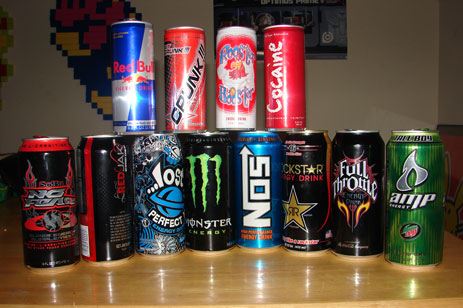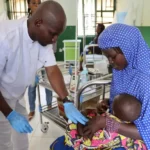To counter the dangers of energy drinks, Nigerians are turning to homegrown means, from social media doctors to grassroots wellness movements.
Recently, Nigeria’s excessive consumption of energy drinks ignited public debate after family physician Olufunmilayo Ogunsanya, known on X as OurFavOnlineDoc, cautioned about its health risks.
He explained that most of these drinks contain dangerously high levels of glucose and caffeine. While they may provide a temporary boost, they can also trigger complications like stomach ulcers, irregular heartbeat, dizziness and even sudden death.
The viral spread of his post reflects growing unease about the rising popularity of energy drinks, especially among young people who often see them as harmless fun.
Digital health influencers
Ogunsanya belongs to a new generation of Nigerian health professionals that leverage social media to dispense medical advice.
Through digital campaigns, medical columns and community outreach, these doctors are increasingly using their voices to raise awareness about the hidden dangers of popular consumables.
What makes them stand out is how they demystify complex medical knowledge using simple language, enabling young Nigerians make healthier choices.
The growing trend of digital health influencers reflects the democratisation of medicine, placing preventive healthcare on the platforms where young people spend much of their time.
Stricter regulations on energy drinks
Regulations surrounding the production and sale of energy drinks in Nigeria are tightening. The National Agency for Food and Drug Administration and Control (NAFDAC) has begun implementing stricter labelling guidelines, requiring manufacturers to clearly display caffeine content, recommended intake and health warnings on product packaging.
Such policies—not fully enforced yet—follow international standards in which warning labels have been shown to influence consumer behaviour.
For instance, similar measures in parts of Europe have led to a reduction in underage consumption. By enforcing clearer labelling and monitoring misleading advertisements that often market energy drinks as “safe” or “performance-enhancing,” regulators are working to ensure that consumers have transparent information before making purchases.
Beyond regulation, schools and youth-focused organisations are integrating awareness into wellness programmes.
Health clubs, secondary schools and universities in Nigeria are increasingly including discussions on healthy lifestyle choices, diet and the dangers of stimulants in their wellness programmes.
NGOs, such as the National Action on Sugar Reduction (NASR), have launched youth-centred campaigns, using music, drama and peer-to-peer education to debunk myths around energy drinks and promote healthier habits like proper sleep and hydration.
These educational initiatives not only discourage harmful consumption but also empower young people to challenge peer pressure and marketing gimmicks that glorify energy drink use as a symbol of modern, fast-paced living.
At the community level, wellness movements are offering healthier alternatives. Fitness centres, nutritionists and local health startups have begun promoting natural substitutes such as smoothies, herbal teas, coconut water and fresh fruit juices as better options for sustained energy.
These alternatives are being popularised through wellness fairs, fitness boot camps, and even small-scale entrepreneurship ventures where young Nigerians create and sell natural drinks.
By providing safe and culturally resonant alternatives, these movements shift the narrative from restriction to replacement, making it easier for individuals to cut down on harmful products without feeling deprived.
The solution to Nigeria’s energy drink challenge lies not in panic but in proactive engagement across multiple fronts. The countrywide campaign demonstrates how awareness and regulation can influence cultural behaviour.
Nigeria is addressing the health risks of energy drinks through increased public awareness and regulation. Physicians like Olufunmilayo Ogunsanya are using social media to highlight the dangers of high caffeine and sugar content in these drinks, which can lead to serious health issues such as heart problems and neurological effects. This awareness is part of a broader movement in Nigeria where digital health influencers play a crucial role in educating the youth on health risks using accessible language.
The regulatory framework is tightening, with the National Agency for Food and Drug Administration and Control (NAFDAC) mandating clearer labeling on energy drinks to inform consumers of potential risks. These measures align with international standards shown to reduce consumption, particularly among underage users. Furthermore, Nigerian schools, NGOs, and wellness programs are integrating discussions on healthy lifestyles and debunking myths about the benefits of energy drinks through educational campaigns.
Community wellness movements are providing healthier alternatives to energy drinks, promoting natural options like smoothies and herbal teas. These initiatives, endorsed by fitness centers and nutritionists, offer young Nigerians culturally resonant choices, encouraging a shift from restriction to replacement. The multi-faceted approach showcases how awareness and regulatory efforts can culminate in positive cultural shifts towards healthier habits.






